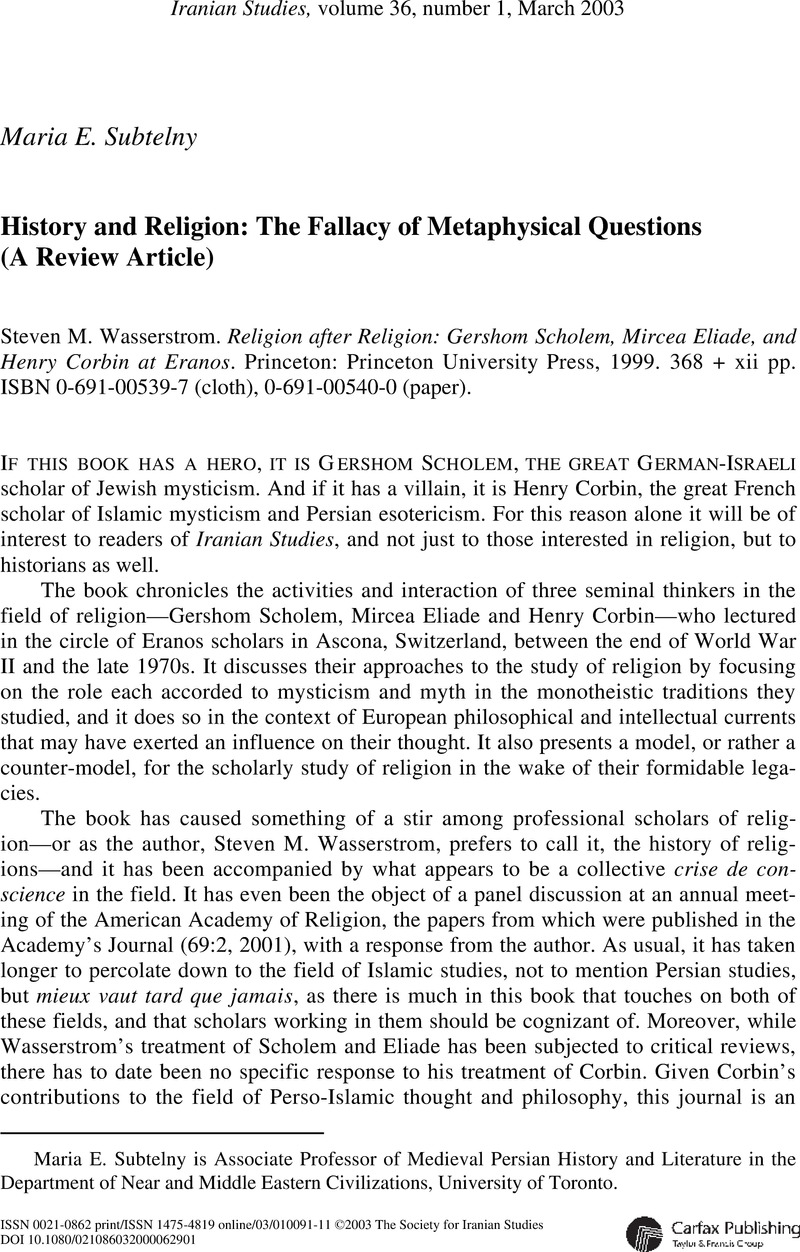Article contents
History and Religion: The Fallacy of Metaphysical Questions (A Review Article)
Review products
Published online by Cambridge University Press: 01 January 2022
Abstract

Information
- Type
- Reviews
- Information
- Copyright
- Copyright © The Society for Iranian Studies 2003
References
1. For this and other historians’ fallacies discussed in this review, see Fischer, David Hackett Historians’ Fallacies: Toward a Logic of Historical Thought (New York, 1970Google Scholar; many reprint editions).
2. Corbin, Henry En Islam iranien, 4 vols. (Paris, 1971), 1: xixGoogle Scholar (italics in original).
3. Corbin, Henry Le paradoxe du monothéisme (Paris, 1981), 43Google Scholar.
4. Corbin, Le paradoxe, 124: “One does not enter into history writ large, become a historical force, or make history with theophanies and visions of angels… .”
5. Corbin, Henry L’imagination créatrice dans le soufisme d’Ibn Arabî, 2nd ed. (Paris, 1993), 91Google Scholar; see also 31, 47, 60, 84–85, etc.
6. Shîrâzî, Rûzbehân Baqlî Le jasmin des Fidéles d’amour (Kitab-e ᶜAbhar al-ᶜâshiqîn), trans. Corbin, Henry (Paris, 1991), 37Google Scholar.
7. Corbin even cautioned against using the term outside the specific frame of intention of the medieval Iranian philosophers.
8. Corbin, L’imagination créatrice, 68Google Scholar.
9. E.g., Corbin, L’imagination créatrice, 14Google Scholar.
10. See in particular the essay entitled, “Le Dieu-Un et les dieux multiples.”
11. See book 7, entitled “La chevalerie spirituelle,” esp. 414.
12. Algar, Hamid “The Study of Islam: The Work of Henry Corbin,” Religious Studies Review 6, no. 2 (1980): 85-91CrossRefGoogle Scholar. Note his comment that, “There is no substantial pre-Islamic substratum in the mainstream religious history of Islamic Iran.”
13. The fact, for example, that Corbin's four-volume En Islam iranien was published in Iran under the aegis of various Iranian government ministries and cultural organizations meant little in the context of book publishing at the time, as scarcely any important book in Persian, let alone one in a foreign language, would have been published without such support. Besides the Society of Petroleum, the National Bank of Iran subsidized countless books on topics ranging from historical geography to medieval hagiography, and many publications also featured full-page portraits of the shah and empress.
- 2
- Cited by

